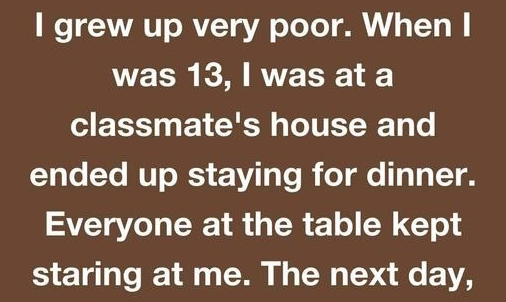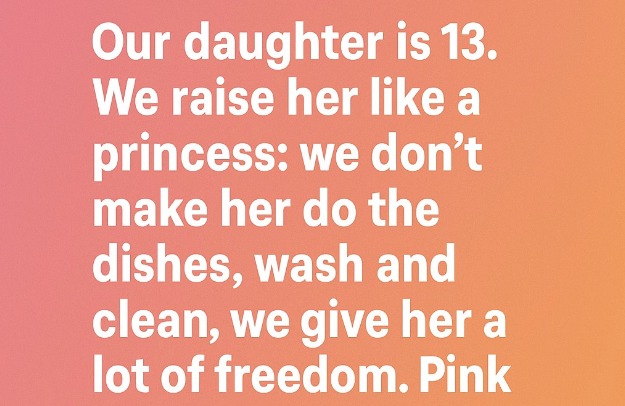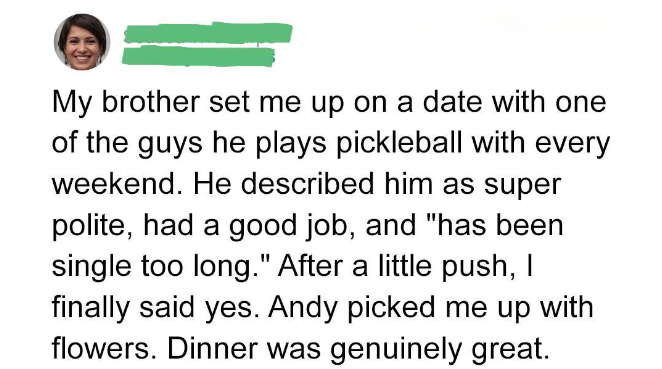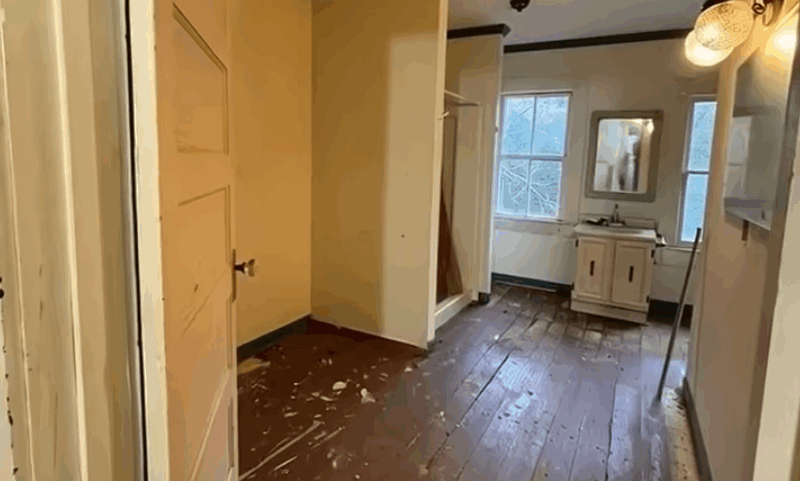I grew up in a home where money was scarce. At 13, I visited a classmate’s house and stayed for dinner. All eyes at the table seemed fixed on me. The following day, I returned from school to find my friend’s mother, Ms. Allen, at our house. My mother’s cheeks glowed with a soft flush. She turned to me and said, “We need to talk.”
Confusion clouded my mind; I had no clue what was happening. Ms. Allen stood near the window, her expression a mix of concern and unease. As a shy kid, I instantly assumed I’d made a mistake. My thoughts raced—had I broken something at dinner, or perhaps said something impolite?
My mother gestured for me to sit. Ms. Allen spoke in a gentle tone. “I noticed your behavior at dinner last night,” she said. “At first, I couldn’t understand why you avoided eye contact, but then it became clear—you’re not accustomed to having enough food. You seemed hungry yet hesitant, almost self-conscious.”
Her words hit me like a wave, and for a moment, my ears buzzed. I recalled the dinner: a basket of warm rolls, generous cuts of meat, and colorful vegetables passed around the table. The abundance captivated me, pulling my focus entirely to the food, as if it belonged to another world.
Clearing her throat, my mother added, still flushed, “Ms. Allen wants to offer us some support.”
My chest tightened. I didn’t want charity; I was weary of sympathy. But when I looked at Ms. Allen, her sincerity shone through. She didn’t view me as a pitiful figure. Her eyes carried genuine care, a desire to make a difference. Still, my pride ached.
She stepped closer, her voice warm. “I’d love for you to join us for dinner regularly, maybe even help me in the kitchen. It’s not formal—just a chance to share a meal. I saw how your face lit up, even briefly, when you tasted a hearty dish. I know things can be tight at home.”
A mix of emotions swirled within me—relief, shame, and a flicker of excitement. Cooking with Ms. Allen? That sounded intriguing, even uplifting. I glanced at my mother, who was fighting back tears. “It’s your choice,” she said softly. “I can’t provide that kind of variety, but Ms. Allen is kind enough to welcome you.”
I took a deep breath, my 13-year-old mind wrestling with fear of judgment, embarrassment, and the warmth of Ms. Allen’s offer. Ultimately, my hunger and curiosity won. I nodded and said, “Okay, I’ll give it a try.”
From then on, every Wednesday after school, I went to Ms. Allen’s house. I’d chop vegetables, stir soups, or season chicken. She taught me how to peel potatoes efficiently and check if pasta was perfectly cooked. Sometimes, my friend Zara, Ms. Allen’s daughter, would pop in and tease me about my serious expression under my apron. But the routine felt comforting, like a second home.
That first Wednesday, nerves almost stopped me from ringing the doorbell. But Ms. Allen opened the door before I could retreat, saying, “Welcome! The onions are ready.” There was no fuss, no pity—just a warm invitation to start cooking.
Soon, I realized Ms. Allen was teaching me more than recipes. She showed me patience, the joy of sharing a meal, and pride in a job well done. My confidence grew each time I stirred a pot and inhaled the aroma of a dish I’d helped create.
One day, after baking biscuits, Ms. Allen asked, “What do you see for your future?” Her question caught me off guard; no one had asked me that so directly. “I don’t know,” I mumbled. “Somewhere, I suppose.”
She wiped flour from her hands and said, “You’re allowed to aim higher than ‘somewhere.’ You know that, don’t you?”
I shrugged. “It’s tough to dream big when dinner’s a struggle most nights. People like me don’t often get choices.”
She gave me a thoughtful look. “That’s exactly why you should dream bigger—to create a different future.” Then she smiled warmly. “You have a knack for cooking. You don’t just follow instructions—you taste, adjust spices, notice if the sauce needs tweaking. That’s a gift.”
Her words lingered with me. The next visit, she handed me a small notebook. “Write down our recipes,” she said. “And if you have ideas, jot them down. You never know where they’ll lead.”
So I did. The notebook filled with our creations: hearty stews, baked fish, roasted vegetables, rich pasta sauces, and desserts like banana bread. Each completed dish became a record of my progress. I asked questions, experimented, and began thinking about cooking even when I wasn’t in the kitchen. For the first time, I felt I had a unique talent.
Over time, life improved. My mother took on extra jobs, saving every penny. We never grew rich, but we managed. My bond with Ms. Allen deepened. I babysat Zara’s younger siblings and helped clean up after family gatherings. Sometimes, I’d bring discounted groceries to share.
On my sixteenth birthday, Ms. Allen handed me an envelope. Inside was a gift certificate for a teen culinary workshop led by a local chef. “It’s not much,” she said, “but I think you’ll love it. It’s a chance to learn professional kitchen basics.”
Tears welled up in my eyes. No one had ever believed in me like this, seen potential worth nurturing. I could barely thank her. She just smiled and said, “Show me what you learn.”
That workshop transformed me. I connected with other kids who loved experimenting with flavors. We swapped tips, tasted dishes, and shared feedback. I began to envision a future as a chef, maybe even owning a café or teaching others like Ms. Allen taught me.
In my final high school year, Ms. Allen helped me apply for a culinary scholarship. I doubted my chances but applied anyway. My mother, usually reserved, became my biggest supporter. We submitted the application and waited. I checked my email daily, heart racing, until one day—I saw the acceptance.
I’d won the scholarship. Overwhelmed, I showed my mother, then raced to tell Ms. Allen. We hugged in her living room, Zara bouncing with excitement, Ms. Allen teary-eyed. “I knew you could do it,” she said, squeezing my hands.
When I started culinary school, I reflected on that 13-year-old at Ms. Allen’s table, too shy and awestruck to speak. One kind gesture—an invitation to cook—had reshaped my life.
Years later, I opened a small restaurant in my hometown, serving fresh, home-cooked meals. My mother, still amazed, visits often to watch me work. Ms. Allen and Zara stop by, and we laugh about my early onion-dicing struggles. I now hire local teens, some from challenging backgrounds, hoping to give them a spark of opportunity like I received.
Looking back, that dinner at my classmate’s house set my life on a new course. Ms. Allen’s quiet generosity and belief in me gave me the courage to dream beyond my circumstances.
The biggest lesson I’ve learned is that one kind act can ignite a lifetime of growth. Sometimes, all it takes is someone offering you a seat at the table—both literally and figuratively. There’s strength in accepting kindness offered with care, and even greater power in passing that kindness forward.
I hope this story encourages you to notice opportunities to uplift others or to accept help when it’s offered. Life can unfold in beautiful ways when we open our hearts. Thank you for reading! If this story resonated with you, please share it to inspire others with the power of small gestures. And please like this post to help spread stories of kindness far and wide.




